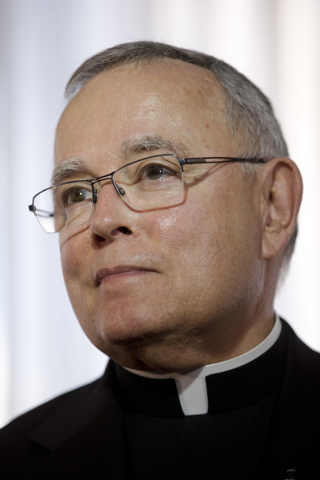Berkley questions increasing U.S. forces in Afghanistan

WASHINGTON — Returning home from a weekend in Afghanistan, Rep. Shelley Berkley said Monday she would reluctantly support a buildup of forces to combat Taliban insurgents as part of a reworked U.S. strategy in Central Asia.
"Until we come up with a comprehensive plan, I am not willing to say we need to ramp up," Berkley, D-Nev., said during a stopover in Germany after spending 11/2 days in Kabul along with several other U.S. House members.
In added comments later in the day, Berkley said she had confidence that Gen. David Petraeus, the incoming leader of the U.S. Central Command, which oversees U.S. interests in the region, will put together a suitable game plan.
Petraeus, who has been credited for the successful U.S. troop surge in Iraq, "has knowledge of the area and understands the need for a comprehensive approach" that includes stepped up diplomacy as well as more force, she said.
In Afghanistan, the visiting lawmakers were briefed by President Hamid Karzai, U.S. Ambassador William Wood and U.S. military leaders in the midst of a surge by Taliban militants who were routed by U.S. forces earlier this decade but who have made comebacks in the countryside.
For security, the visitors largely were confined to military camps in the capital. It was Berkley’s first trip to Afghanistan. She traveled to Iraq last December.
By comparison, she said, "Afghanistan makes Iraq look like paradise on Earth."
"You look at this hellhole of a country. It truly is no-man’s land," said Berkley, who noted the nation would be desperately poor "even if they hadn’t been at war for the past 30 years."
Still, while Afghanistan has few resources the United States would covet, Berkley said, its central location in a volatile part of the world makes it strategically significant and underscores the need for a broad regional U.S. strategy.
The approach, she said, should incorporate U.S. policy for neighboring Pakistan to the south and east, Iran to the west and former Soviet republics Turkmenistan, Uzbekistan and Tajikistan to the north.
"I think we need to take a more comprehensive approach," Berkley said, instead of the Bush administration’s "shotgun" strategy of dividing attention among Iraq and Afghanistan, and now Pakistan where insurgents regrouped for the latest offensive in Afghanistan.
Berkley said the U.S. military in Afghanistan seemed to share that view.
"They want to plus up the troops but also want to make sure we can create an infrastructure and an economic base, and not just limited to Afghanistan," she said.
The Bush administration is conducting top level reviews of the mission in Afghanistan including proposed increases for U.S. troop levels. In September President Bush announced an additional 4,500 troops would be deployed there.
U.S. Gen. David McKiernan, the NATO commander in Afghanistan, has requested 10,000-15,000 additional troops be sent to Afghanistan into the new year.
There are about 33,000 U.S. troops in Afghanistan presently, and 65,000 overall counting allied nations.
But Berkley said the lawmakers were told that Americans are doing most of the fighting alongside Afghani soldiers, "who want to fight and defend their country."
Berkley joined Reps. Steve Israel, D-N.Y., Tom Reynolds, R-N.Y., Michael Arcuri, D-N.Y. Rep. Jean Schmidt, R-Ohio, was on part of the trip.
Contact Stephens Washington Bureau Chief Steve Tetreault at stetreault@stephensmedia.com or 202-783-1760.